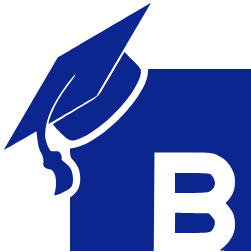Find out more about the Licence, the first degree in the LMD system (Licence, Master, Doctorat). You’ll discover the essential features of this bac+3 diploma, its content, study and career opportunities, and its key role in French higher education. Whether you’re a high school student looking for information on your future academic career, or a student wanting to better understand the opportunities offered by the bachelor’s degree, this article will shed some light on this essential diploma.
The licence: a bac+3 diploma
The licence is a bac+3 diploma that plays an essential role in the French higher education system. With a duration of three years, this university degree provides students with a solid foundation of knowledge in a wide range of fields. Indeed, it covers virtually every field of knowledge, from the arts and humanities to the sciences, humanities and social sciences, law, economics, management, foreign languages, technology and health. This diversity enables students to choose a degree that matches their interests and career aspirations. Thanks to its national and European character, the bachelor’s degree is recognized beyond borders, opening up international study and career opportunities for graduates.
With the LMD (Licence, Master, Doctorat) system widely adopted in France and many other European countries, the licence is the first step for students wishing to continue their studies beyond the baccalauréat. It is equivalent to 180 ECTS credits, attesting to the level of skills acquired on completion of the course. The bachelor’s degree program comprises theoretical instruction divided into six semesters, generally totaling at least 1,500 hours of lectures, plus hours of personal work. Although the content of the bachelor’s degree may vary from one university to another, this structure guarantees in-depth teaching and coherent academic progression. The bachelor’s degree offers students the opportunity to progressively specialize in their field of study, while developing cross-disciplinary skills and acquiring a global vision of the issues facing contemporary society.
Bachelor’s degree content
The content of the bachelor’s degree is designed to provide students with in-depth training in their field of study, while allowing them to explore a variety of related subjects. Bachelor’s programs cover a wide range of fields of knowledge, from the arts and humanities to the humanities and social sciences, including law, economics, management, science, technology and health. This diversity gives students the opportunity to choose a degree according to their specific interests and career aspirations.
The bachelor’s degree takes place over six semesters, with a significant volume of lectures in amphitheaters and tutorials or practical work in small groups. Over the course of three years, students acquire a solid foundation of theoretical and practical knowledge in their field of study. By working on individual and group projects, they also develop the analytical, research and problem-solving skills essential for their future careers. The content of the Bachelor’s degree can vary from one university to another, giving students flexibility in choosing their courses and tailoring their training to their interests and goals.
Organization of courses
The organization of Bachelor’s courses varies from one university to another, but certain features are common to all. Lectures are often given in amphitheatres, bringing together a large number of students to receive fundamental theoretical instruction. These courses are supplemented by tutorials or practical work in small groups, giving students the opportunity to interact with teachers, to go into greater depth on concepts covered in class, and to participate actively in discussions. This pedagogical approach fosters a better understanding of subjects and enables students to ask specific questions.
The Bachelor’s degree program is generally divided into six semesters, with a gradual progression of knowledge and skills over time. Each semester represents a unit of learning, and students must validate a certain number of ECTS credits to move on to the next semester. The choice of subjects and options can vary from one university to another, enabling students to tailor their academic path to suit their interests and career goals. Some degree programs may also include optional courses or specific projects linked to the chosen specialization. In short, this organization of undergraduate courses aims to offer students a balanced learning experience, combining in-depth theoretical instruction with interactive and practical activities to foster their intellectual and professional development.
Internships and further study
Internships are not generally compulsory in general bachelor’s programs, but may be more frequent in professional bachelor’s programs. Internships are a valuable opportunity for students to gain practical experience in their field of study, and to familiarize themselves with the professional world. They can also enable them to develop specific skills sought after by employers and establish useful contacts for their future careers. Internships are often an opportunity for students to put into practice the knowledge they have acquired in the classroom, to discover different professional environments and to project themselves into their future employment.
Once they have obtained their bachelor’s degree, students have the choice of entering the world of work or continuing their studies. Many opt to continue their studies, often enrolling in a Master’s program (bac+5). This allows graduates to further specialize in their chosen field, acquire cutting-edge expertise and position themselves on the job market with additional skills. Students can choose to pursue their Master’s degree at the same university where they obtained their licence, or to enter another university or specialized school in France or abroad. Ultimately, the Bachelor’s degree provides students with a solid platform for shaping their academic and professional futures, with diverse opportunities to succeed in their careers and realize their professional aspirations.
Licence: what you need to know
The licence is the essential first step for students considering higher education in France. This bac+3 diploma offers a wide range of choices in different fields of knowledge and guarantees international recognition. Thanks to its three-year theoretical curriculum, students develop solid skills and can specialize in their field of interest. Whether entering the world of work or continuing on to a Master’s degree, the Bachelor’s degree opens doors to a promising academic and professional future. A thorough understanding of this degree is therefore essential to making informed choices and achieving personal and professional goals.


Leave a Reply